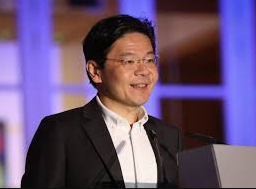In the battle against populism, political discourse often misses the mark in engaging everyday citizens.
The recent debates between Deputy Prime Minister (DPM) Wong and Workers’ Party MPs left me unimpressed. If we truly care about tackling populism, we should address the issues in a way that resonates with people. If we want to foster a more mature democracy in Singapore, we need to encourage public discussion.
Unfortunately, neither of these goals were achieved in this exchange. I didn’t feel engaged as a citizen or even as someone who might be pandered to. Maybe I missed something—perhaps I’m not the intended audience for this type of discourse.
Let’s consider the case for populism. Yes, it’s harmful—but why should ordinary people care? Most Singaporeans are struggling to make ends meet. They care about their finances, their housing, and job security. How does an argument against populism address these concerns? What does a “populist proposal” mean for the average person? (This isn’t to say people can’t understand why populism can harm democracies, but simply throwing the term around doesn’t make it compelling.)
It would be much more effective to demonstrate how populism impacts everyday life. But the recent spectacle in Parliament failed to do that. The ongoing debate between the People’s Action Party (PAP) and the opposition over alleged shifts in policy positions hasn’t made the connection to the issues that affect people on the ground.
How do these debates address people’s fears and concerns? Why should they care about these political issues? The success of engagement depends largely on how well political leaders can communicate, and from what I’ve seen, this has been a missed opportunity.
The “Concrete Alternatives” Dilemma
Similarly, when people call for “concrete alternatives,” it often assumes what we value and what we don’t. It presumes we all agree on the same priorities. This can lead to the impression that your thoughts are invalid if you don’t provide a fully-formed solution.
It’s like arguing over the best route to take or which car to drive—without ever questioning where we actually want to go. The focus is on tactics and methodology, but we rarely stop to discuss the destination itself. What if we have different goals, or no clear destination at all?
Our goals should be realistic, of course, but we must first establish what they are before we start working on the path to achieve them. If the road is blocked, then we’ll find another way.
A Work in Progress
There’s a lot of talk about maturing democracies on both sides of the political spectrum. But a key part of this maturing process is engaging the people. As citizens discover what matters to them, policymakers also adjust their proposals.
Demanding concrete certainty is tempting, but it often puts the cart before the horse. Even if a populist policy is impractical, it still reflects something important—it reveals what people feel on the ground. If a policy is truly bad, it will be exposed in public discourse. Dismissing it outright as “populist” closes off opportunities for nuanced discussion.
That’s why public dialogue is essential. Whether we reinforce our current values or adopt new ones, it’s through discussion that we clarify what we care about. Isn’t that the point of dialogue?
As we search for solutions, we must be careful not to undermine our own efforts. In the fight against populism, convincing people requires honest communication—and that starts with listening to them.








